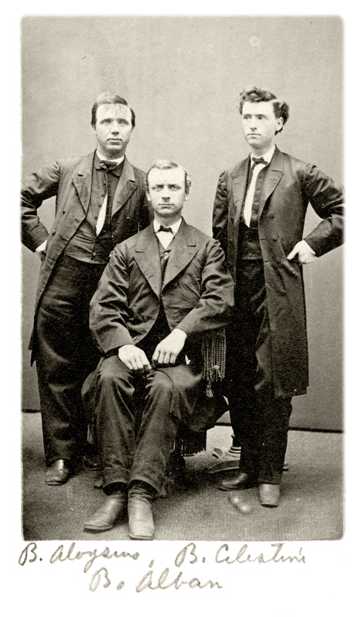

Father Moreau did not give up; in 1838 he convinced the government to allow Holy Cross to teach more advanced subjects in French schools. But the educational mission of Holy Cross was not limited to France. Wherever they went in the world, Holy Cross priests and brothers became teachers. The most successful missions were in America, where Father Moreau's philosophy of education influenced Father Edward Sorin as he founded the University of Notre Dame. At first, it was a university in name only -- but Father Sorin, like Father Moreau, had aspirations that seemed to go beyond what was possible. And like Father Moreau, Father Sorin ultimately succeeded in his desire to establish Holy Cross priests and brothers not only in elementary schools but also in higher education.

1789 French Revolution begins.
1790 Religious orders in France are disbanded, schools closed; government seizes Church property. Since nearly all schools are Catholic schools, this means that children no longer go to school.
1799 Moreau born on February 11th of a peasant family in northwestern France, Province of Le Maine. Napoleon rules France.
1801 Concordat between France and Pope: secular clergy permitted to teach.
1807 Moreau's education begins with lessons from his parish priest (age 9).
1814 Napoleon goes to Elba; Moreau goes to high school at Chateau-Gontier (age 15).
1815 Napoleon returns from Elba and is defeated at Waterloo.
1816 Moreau goes to the seminary of St. Sulpice, Paris (age 17).
1821 Napoleon dies on Saint Helena. Moreau is ordained a priest (age 22).
1823 Moreau teaches philosophy at the minor seminary of Tessé. He meets Father Dujarié, founder and superior of the Brothers of St. Joseph (age 24).
1825 Moreau appointed to chair of dogmatic theology at St. Vincent's major seminary (age 26).
1830 Moreau assigned to teach sacred scripture instead of dogmatic theology, probably because of his stand against Gallicanism (age 31).
1831 Father Dujarié chooses Moreau to help with the Brothers of St. Joseph.
1836 Bishop removes Moreau from his position as a professor of scripture at the major seminary and approves the establishment of the Auxiliary Priests of Le Mans, allowing them to work not only as missionaries but also as teachers (age 37).
1838 Moreau secures state authorization for his priests to teach at the high school level (age 39).
1842 Holy Cross missionaries found the University of Notre Dame.
© Copyright 2007 by the Archives of the University of Notre Dame.